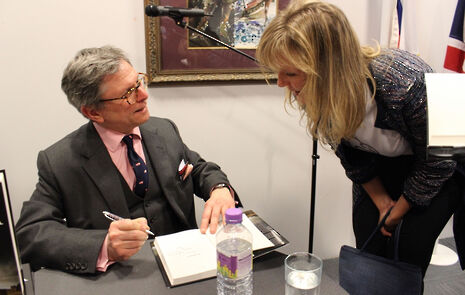Cambridge ‘spy’ journal closed after rumoured Kremlin connection
Publisher shuts down Journal of Intelligence and Terrorism Studies amid unproven allegations of Russian influence

An academic journal focused on spying, intelligence and counter-terrorism that had close ties to the University of Cambridge closed with immediate effect yesterday, amid allegations that its publisher had unacceptable ties to Russia.
Academic digital-only publisher Veruscript announced yesterday that it would cease publication of the Journal of Intelligence and Terrorism Studies, which is edited by Cambridge Professor Neil Kent, and that its editorial and advisory boards would resign.
The journal has strong links to the Cambridge Intelligence Seminar (CIS), an academic events group which is at the centre of allegations of inappropriate Russian influence. The CIS runs prominent and respected term-time events on spying and espionage, and attracts many high-profile speakers. Professor Kent is one of the CIS’s convenors, and several other members of the journal’s listed editorial team have ties to Cambridge.
Last week, the Financial Times reported that three members had quit the CIS over concerns about its alleged links with the Kremlin, but was unable to establish any evidence of interference.
Among the members who left were Sir Richard Dearlove, former head of MI6 and ex-Master of Pembroke College. The Times reported that Dearlove quit over fears that Veruscript, which claims to have given £2,000 to CIS, had ties to Russia via the billionaire father of one of its founders that could compromise its activities.
In its statement, Veruscript said the decision to close the journal came “after a range of spurious and completely unfounded claims were made in UK media.”
“All claims and allegations are false and without substance, and the company has retained legal advice to assess the reputational damage caused to the company as a result of such sensational reporting,” it added.
“We appreciate that there is heightened interest in Russia and its geopolitical status,” the statement went on to say, “but despite all parties disputing the allegations, and no evidence being found, Veruscript and its publication has found itself caught up in news and speculation about independent research, thinking and the University of Cambridge, which is the exact opposite of what we have set out to achieve.”
In an additional statement, Veruscript founders Gleb Cheglakov and Nazik Ibraimova, added: “We would like to thank the authors and academics that have supported the launch and work of JITS over the past two years.”
“We feel hugely disappointed that our collective efforts to fight for fairness and bring innovation to academic peer reviews have been compromised due to this unfounded and unreasonable speculation and comment.”
The University of Cambridge declined to comment on the story.
 News / Report suggests Cambridge the hardest place to get a first in the country23 January 2026
News / Report suggests Cambridge the hardest place to get a first in the country23 January 2026 Arts / Exploring Cambridge’s modernist architecture20 January 2026
Arts / Exploring Cambridge’s modernist architecture20 January 2026 Comment / The (Dys)functions of student politics at Cambridge19 January 2026
Comment / The (Dys)functions of student politics at Cambridge19 January 2026 Theatre / The ETG’s Comedy of Errors is flawless21 January 2026
Theatre / The ETG’s Comedy of Errors is flawless21 January 2026 News / Students condemn ‘insidious’ Israel trip23 January 2026
News / Students condemn ‘insidious’ Israel trip23 January 2026









